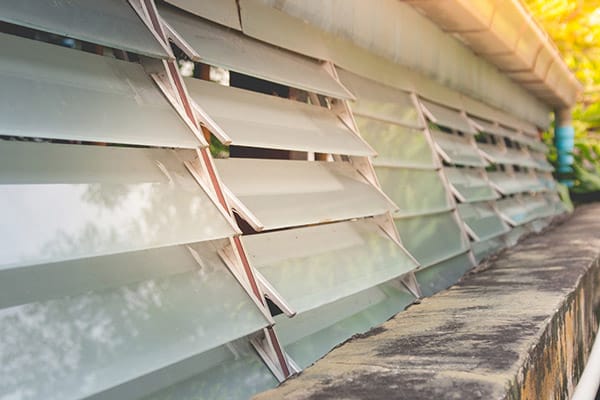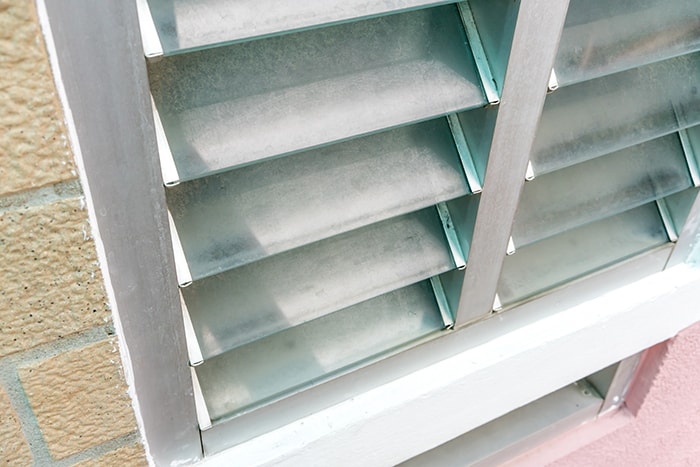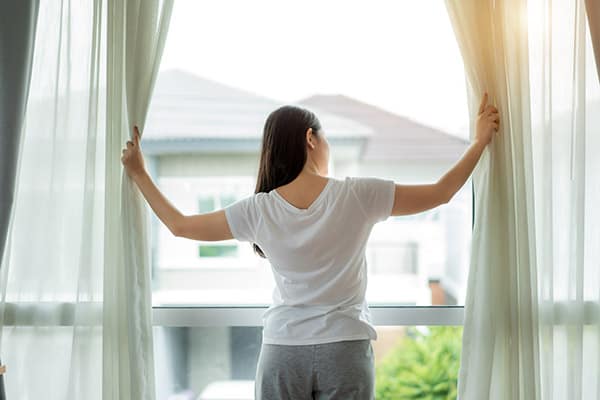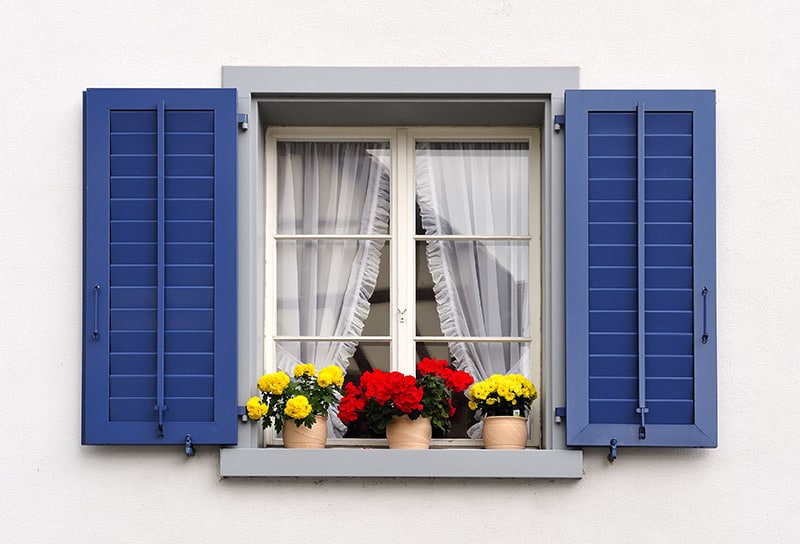Why You Don’t Want Jalousie Windows
Ah, the jalousie window. The name sounds romantic, doesn’t it? Perhaps you’ve never heard of a jalousie style window.

It’s also called a louvered window, and this style consists of horizontal panels, either made of glass, plastic, metal, wood or other window material that sits on a track on the window’s frame. The operator uses a crank or knob to open and close these horizontal panels, letting in plenty of air.
Picture the panels similar to a windowed version of Venetian blinds and its slats, and there you have it: jalousie windows.
The Start of Jalousie Windows
The jalousie window first made its debut in the early 1900s. It was originally patented in 1901, but it had a slow start to catch on. Sometime in the late 1960s, jalousie windows had begun popping up on homes, especially in the south.
With the style’s horizontal panels that opened a home up to a passing breeze, these windows were perfect for letting the air-flow inside to cool off or to substitute for the lack of air conditioning during hot summers.
However, the jalousie window didn’t just hit its stride in the 60s in the southern states. In the colder parts of the United States, you would see jalousie windows on enclosed porches, gazebos, and sunrooms across the Midwest and Northern U.S. Jalousie windows also struck luck in the realm of mobile homes.
Mobile homes and trailers, strapped with limited space and most with no air conditioning, found that they can benefit from space-saving, ventilating jalousie windows.
Where Jalousie Windows Took a Turn
Almost a decade later, homeowners started to turn away from the jalousie window style. By the time the 1970s hit, the majority of American homes had air conditioning. The primary use of a jalousie window style quickly became obsolete.
Homeowners no longer found jalousie windows practical let alone attractive. The sentiment rang true in 1973 when the energy crisis erupted through the nation. With cooling prices on the rise, the jalousie window was on its way out.
It wasn’t just air conditioning and pricey energy costs that pushed jalousie windows out of popularity. There are other reasons why you won’t want to equip your home with a jalousie window.
Lack of Security
Jalousie windows are far from being the most secure style of window a home can have. The horizontal panels that open and shut to allow for breezes also attract anyone looking to break into your home.
The panels are vulnerable, and compared to a standard window with durable glass panes, can be broken with relative ease. Jalousie windows made of wood are even more at risk to breaking and entering, as it doesn’t take much for intruders to find their way through.
Doesn’t Mix With Air Conditioning
Jalousie windows were popular in pre-air conditioned homes, but now if you have jalousie windows and air conditioning, you can expect poor energy-efficiency throughout your home. Jalousie windows never close completely, and there are gaps between the panels even when they’re closed.

Running air conditioning with jalousie windows will run up your monthly energy bills.
In the winter, heat escapes through jalousie window panels. Your home will be drafty because of these chilly breezes that pass through. While modern jalousie windows are built with better sealing abilities than older versions, the jalousie style is still the least energy efficient window on the market.
More Working Parts
The more working parts anything has, the more that can go awry, and the more that needs fixing, the more money, time, and effort you’ll spend on repairs. That’s the common complaint behind jalousie windows.
The opening and closing of jalousies require many working parts and this style is exposed to the elements much more than other windows. Mechanical problems are commonplace. Rust forms on the tracks, parts break and the panels fail to function smoothly due to lack of reinforcement.
Jalousies are easy enough to fix on your own, but even with the simplest of repairs, do you want to spend time and money on windows that should serve one simple purpose? Your windows shouldn’t require constant maintenance, repairs, and replacement parts.
Jalousie Windows: Why You Shouldn’t Have Them In Your Home
Windows should be energy efficient, provide plenty of natural light, and help regulate your home’s internal temperature. There are plenty of window style alternatives to jalousie windows that can still allow for ventilation but without the slew of disadvantages.
Things like poor security, draftiness, and a cycle of needed repairs due to multiple working parts and exposure to outer elements are not qualities of a reliable window. Perhaps these are apart of the many reasons why jalousie windows are out of style.
When it comes to windows, you want something that will be energy-efficient all year round, working parts that are conditioned to last for a long time, and a secure window that won’t invite intruders. All those qualities and perks are found at Feldco. Speak to a product specialist and get a free quote online today.





